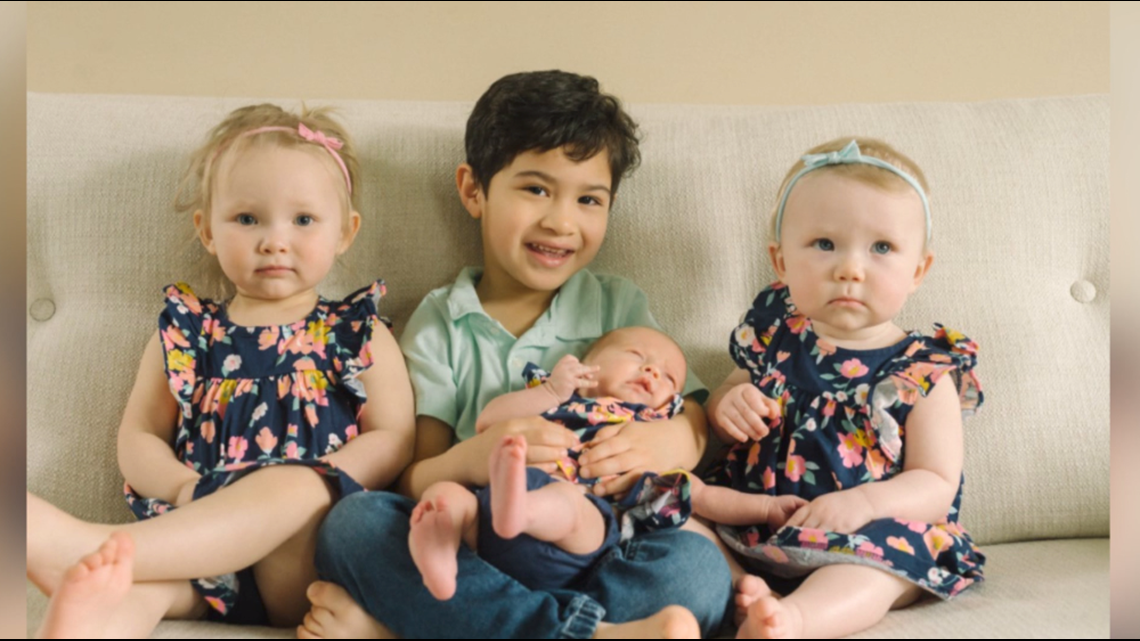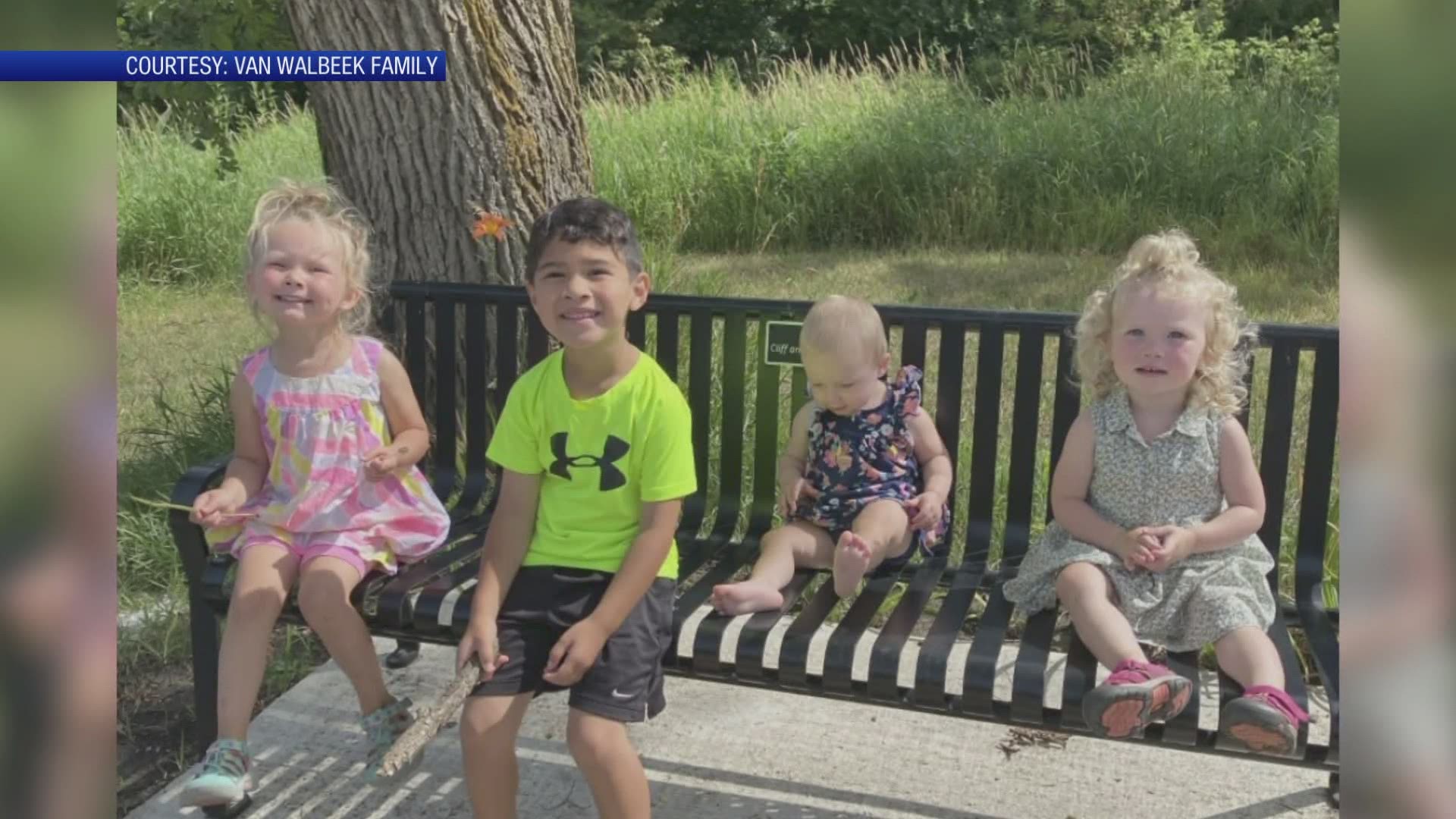The Iowa Department of Human Services has put a pause on moving forward with a list of new regulations that Iowa foster care families were initially supposed to adhere to by September 1 in order to maintain their licenses.
Last week, foster families across Iowa were emailed a list of 17 "assurances" and given a little over 30 days' notice to sign. The assurances and accompanying licensing rules caused a stir among many families who felt that they were infringing on their rights to parent their biological children.
The assurances were part of Iowa's response to the Family First Prevention Services Act, a federal law passed in 2018 that aims to strengthen child welfare in Iowa, addressing funding and prevention services.
Natalie Van Walbeek has four children, ages one through five, including her son Zane who she adopted after fostering. She had planned to foster another child starting this August, but said the new assurances may affect her ability to do so.
"We are more than happy to take a child in next month, but we cannot with a clear conscience sign off on all of those requirements that they are asking us to sign," Van Walbeek said.


One of the licensing rules, which the Department of Human Services deemed in a letter to be "reasonable, achievable" and "increase the safety for children placed in foster homes", included mandating that all children in the home be vaccinated.
All children who are household members must be up-to-date on immunizations, reads the letter. Applicants must provide a written copy of an immunization recordrd for each child in their home to their RRTS worker.
Van Walbeek said while she's not against vaccinating, she is against not having a right to "your own autonomy or using some discretion with new vaccines."
She said the way she interprets the new law, all adults and children should have all vaccines, including any impending COVID-19 vaccine.
"A few assurances that they have pushed on us that directly contradict our faith or our direct family values," she said. "Our ultimate hope is that we can work together with DHS to continue providing safe homes, but also continue respecting foster families' personal beliefs, their faith, and what they have decided as their family values."
Elaine Cox is an Iowa foster mom of three decades, and a current instructor for TIPPS-MAPP (Trauma Informed Partnering for Safety and Permanence: Model Approach to Partnerships in Parenting) for Iowa foster families.
As a former pediatric nurse, Cox firmly stands behind vaccinating all children.
However, she thinks that the first assurance, which bans corporal punishment for all children in the home, is a bit of an overreach.
"I teach my students: these [foster children are like] your nieces and nephews. You love them, you shower them with love, you give them everything they need, but you treat them as your nieces and nephews. I don't spank or swat my nieces and nephews," she said.
Cox believes there should be a distinction between guidelines to discipline foster and biological children.
"My children I have raised, they understand that when I swat them on the hand because they try to plug a fork into the electric outlet, or if they run into the street and I give them a swat on the diaper--that's my right, that's my privilege, those are children that I have raised from infancy."
Cox noted that the model standards at the federal level only address corporal punishment when it comes to foster kids.
"Iowa has interpreted the federal law to say that foster parents must sign of that they will never use any corporal punishment with their own children, and that's an overreach," she said. "They have no right to tell me how to parent my own children."
Iowa foster mom Abby LaVigne began taking names of families who didn't feel comfortable signing off on the new guidelines. By Monday afternoon, the list included 71 currently licensed families, representing 51 active placements of foster children. She said the list also includes seven families who are in the process of getting their license.
Monday evening, the Iowa Department of Human Services said they would reassess the guidelines after hearing concerns from families.
Matt Highland, Bureau Chef of Communications for Iowa DHS said in a statement:
Family First is an important piece of federal legislation that has tremendous bipartisan support. To implement this federal legislation, states were required to submit a plan to federal partners for approval. DHS received plan approval mid-2019.
We’ve heard concerns regarding the assurances agreement letter which operationalized this federally approved plan. Director Garcia is hearing these concerns and exploring the available options to balance both the safety and well being of Iowa’s foster children while preserving parental rights. We apologize for any confusion this has caused for our foster families and we are grateful for their service in providing safe homes for Iowa’s children in need.
Debbie Craig, Chief Advocacy Officer with Four Oaks, the agency that licenses roughly two-thirds of foster families, said they will wait to hear communication from Iowa DHS in regards to any future revisions to the rules.

